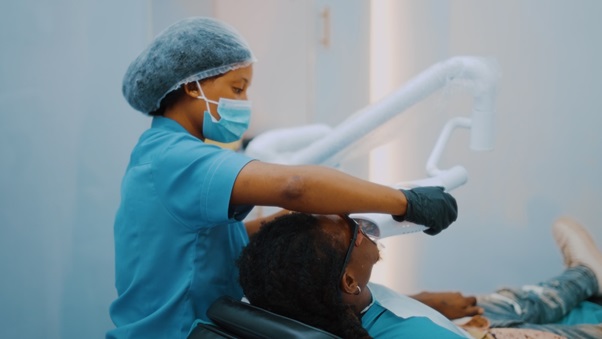There were almost 9000 new cases of oral cancer reported in the UK last year. This is an increase of 34% in the last decade and more than double in two decades. Although there is greater awareness than ever before, last year more than 3000 people in the UK lost their life to oral cancer. Cancer research UK warns that 1 in 55 UK males and 1 in 108 UK females will be diagnosed with oral cancer in their lifetime.
Causes of oral cancer
Oral cancer is significantly more common in male patients than female patients. The incidence rate is three times higher for males than for females. It is more common amongst white patients than hispanic or black patients and the chance of developing oral cancer increases with age. This means that older, white male patients are more likely to develop oral cancer than others. The main causes of oral cancer are smoking, alcohol and HPV infection.
Studies show that 85% of patients with oral cancer either smoke cigarettes or tobacco. The risk of cancer increases according to the duration and the frequency of tobacco use. It is important that you speak to your doctor and find out about smoking cessation as early as possible. Smoking not only results in oral cancer, but it is also a major factor in other types of cancer including lung cancer, stomach cancer, colon cancer, cervical cancer and some types of leukaemia. Smoking causes a range of dental health complications. It has a huge impact on the appearance of your teeth. Smoking is one of the major causes of teeth staining. At first your teeth may be yellow and then eventually over time your teeth will become brown which can be very unsightly and embarrassing. This can be difficult to get rid of and you will need to speak to your dentist Richmond and find out about teeth whitening or other cosmetic dental treatments that can disguise the stains. It is also the main cause of gum disease, it can cause tooth decay and it can cause premature tooth loss.
If you are a smoker then it is very important that you visit your dentist on a regular basis. Most patients are recommended to visit the dentist twice a year, however if you are a smoker then it is recommended that you visit more often. You need to maintain excellent dental hygiene at home, but more importantly you need to seek advice on smoking cessation and to take action immediately. Your dentist will carry out a thorough examination of your mouth each time you visit the practice to check for any abnormalities and in this way you will receive the right treatment at the right time. The dentist plays a major role in the detection of oral cancer. The disease can be asymptomatic to begin with, but your dentist can detect abnormalities and refer you for further investigation immediately.
Consequences of oral cancer

If detected early on and there is no spread, oral cancer is curable and the five year relative survival rate is more than 85%. A quarter of oral cancers are diagnosed at this stage and can be treated successfully. Radiotherapy may be sufficient if the cancer is detected early. Where radiotherapy is insufficient, you may need surgery. There are different types of surgery depending on the size and location of the tumour. They range from primary tumour surgery, where the tumour is removed through your mouth or a small incision in your neck, to complete reconstruction which involves removing large areas of tissue followed by reconstructive surgery to replace the parts of your mouth that have been removed for example lips, tongue, palate or jaw. Following the surgery patients may receive chemotherapy and immunotherapy. If left untreated then oral cancer will spread throughout your mouth and throat to other areas of your head, neck and body.
Importance of visiting the dentist

Early detection is very important for the successful treatment of oral cancer as some oral cancers can spread rapidly within weeks and months. It is important that if you notice anything unusual in your mouth or a change in your mouth then you book an appointment with your dentist immediately. Your dentist will carry out a physical examination which includes carefully looking at the entire inside of your mouth and feeling around the mouth where necessary. If they suspect any abnormalities they will examine your head, face and neck for potential signs of cancer and refer you to your doctor or hospital immediately. Remember to visit the dentist on a regular basis with your whole family to look after your teeth and gums and your overall health and wellbeing.

